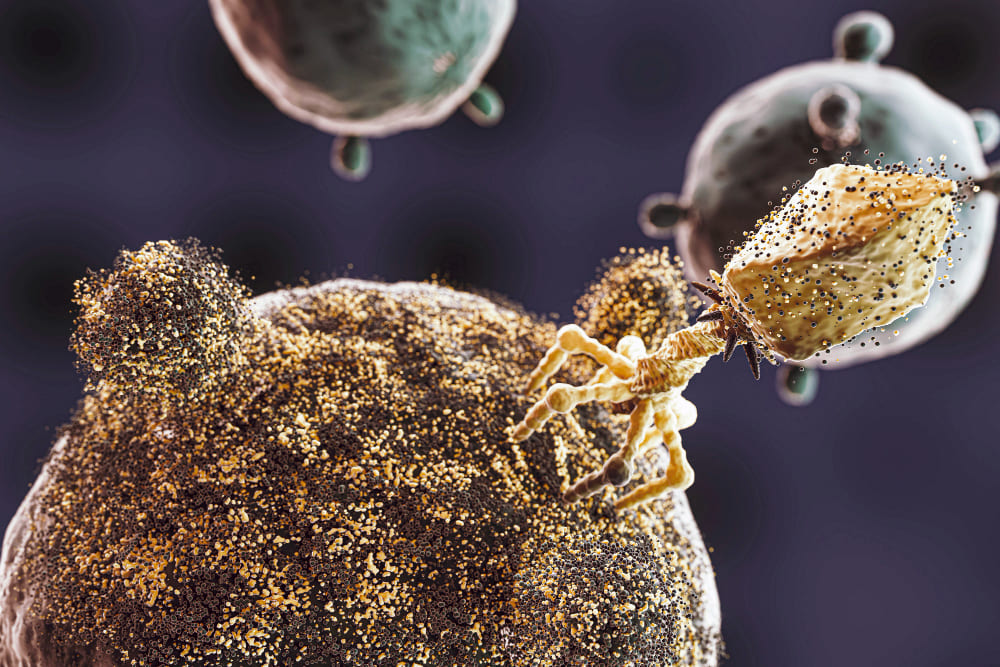When discussing the battle against bacteria, antibiotics often steal the spotlight. However, the unsung heroes of microbial warfare are bacteriophages, or simply phages. These nifty little viruses specifically target and destroy bacteria, offering a natural alternative in our fight against bacterial pathogens. In light of alarming antibiotic resistance trends, bacteriophages are experiencing a renaissance in scientific circles, with research highlighting their potential as precise antibacterial tools. According to Dr. Alexander Sulakvelidze, bacteriophages hold the key to addressing the limitations of antibiotics, offering long-term sustainable management of bacterial infections. Phages work by latching onto bacterial cells, injecting their genetic material, and hijacking the cell’s machinery to produce more phages, ultimately leading to bacterial cell lysis. This unique lifecycle ensures that once the target bacteria are eliminated, the phage population diminishes, reducing the risk of damaging beneficial gut flora. Read more about bacteriophage therapy here.
Current Trends in Phage Therapy
The rise of antibiotic-resistant bacteria has put phage research in the spotlight as a viable alternative to conventional treatments. Europe has seen several promising clinical trials showcasing the efficacy and safety of phage therapy. Researchers from the University of Copenhagen have pioneered personalized phage therapies, tailoring treatments to individual bacterial infections, ensuring maximum efficacy. This personalised approach has seen remarkable success in treating severe infections, especially in patients suffering from conditions like Cystic Fibrosis, where bacterial resistance is a significant challenge. As the stakes rise with resistant strains, the EU is urged to adopt policies that promote phage therapy as part of a comprehensive strategy in combating bacterial infections. This echoes the sentiment of recent global initiatives to promote alternative antimicrobial strategies that align with sustainable health practices.
Efficacy and Safety of Phage Treatment
Efficacy and safety are paramount in advancing phage therapy. A comprehensive study led by the Pasteur Institute demonstrated that phage cocktails, which employ a mix of different phages, can effectively clear multi-drug resistant bacterial infections without adverse effects. This cocktail approach enhances treatment resilience and minimizes the risk of resistance development. Safety trials reveal low toxicity levels and fewer side effects compared to standard antibiotic treatments, making phage therapy a safer option for vulnerable patient groups, such as children and the elderly. The robustness and adaptability of phages make them an attractive candidate for regular clinical application in a multidisciplinary healthcare setup. This encourages ongoing investment in phage research to overcome regulatory hurdles and facilitate integration into existing medical protocols.
Environmental Impact of Phage Application
The environmental implications of using bacteriophages are profound, especially given the global push towards eco-friendly medical solutions. Phages offer a greener alternative to antibiotics, eliminating the need for chemical interventions that disrupt ecological balance. In agriculture, phages are being explored to target bacterial plant pathogens, effectively protecting crops while reducing pesticide reliance. Such practices promise to increase agricultural yield without contributing to antibiotic pollution, a significant environmental concern. By maintaining a natural balance between microbes, phages play an integral role in preserving biodiversity and ecosystem health. These factors highlight the broader applications of phages beyond medical settings, providing a sustainable solution for pest and pathogen control in diverse environments.
Challenges and Future Prospects
While the potential for phage therapy is vast, challenges in standardizing treatment protocols and regulatory acceptance persist. There is a pressing need for further research addressing the technical and practical aspects of phage therapy, such as delivering phages effectively in different clinical scenarios and ensuring consistency in their production. Collaboration between researchers, clinicians, and policymakers is crucial to overcoming these barriers and maximizing the therapeutic potential of phages. With advancements in genomic sequencing and biotechnology, the future outlook for phage therapy is optimistic. Innovations in these fields promise an era of precision phage treatment, where therapies are tailored to individual genomic profiles and infections, opening new dimensions for personalized medicine.
Bacteriophages in Food and Agriculture
In the food industry, bacteriophages are stepping up as natural preservatives. They are adept at targeting specific harmful bacteria in food products, enhancing food safety without altering taste or quality. This not only extends shelf life but also reduces the risk of foodborne illnesses, aligned with the growing demand for organic and chemical-free food preservation methods. Likewise, in agriculture, phages provide an efficient means to control bacterial pathogens that threaten crop production. They work by selectively infecting and eliminating plant bacteria, reducing dependency on chemical pesticides and promoting healthier ecosystems. By integrating phages into agricultural practices, farmers can achieve sustainable cultivation methods that minimize environmental impact. The use of bacteriophages spans numerous sectors, emphasizing their versatility and importance as a natural bacterial defense.
Innovative Approaches in Phage Research
Innovation in phage research is gaining momentum. Scientists are exploring genetic modifications to enhance phage efficacy against resistant bacterial strains. These advancements hold promising applications in combating resistant pathogens that fail conventional treatment. Researchers harnessing CRISPR-Cas technology are designing phages with improved capabilities, ensuring comprehensive bacterial eradication. The implementation of advanced biotechnological techniques offers a new realm of possibilities for phage application, potentially paving the way for novel and effective treatment strategies that meet the unique challenges of modern healthcare. For additional insights into innovative phage research, explore this detailed exploration of phage innovations.

